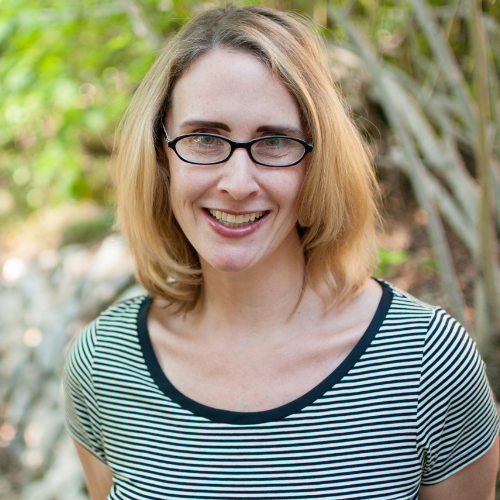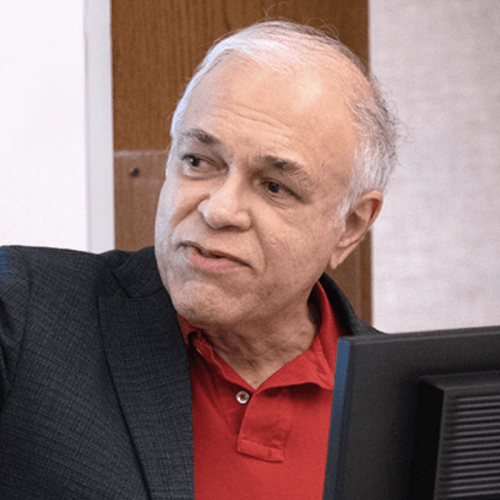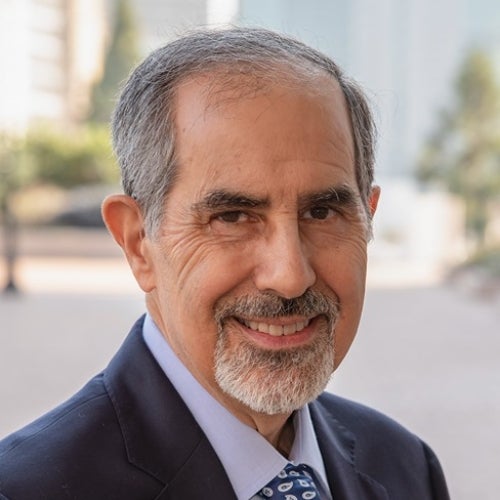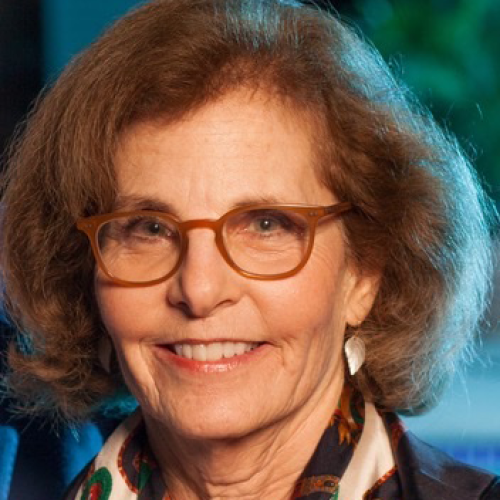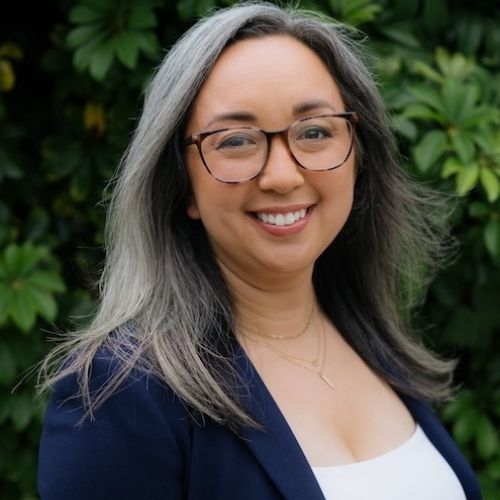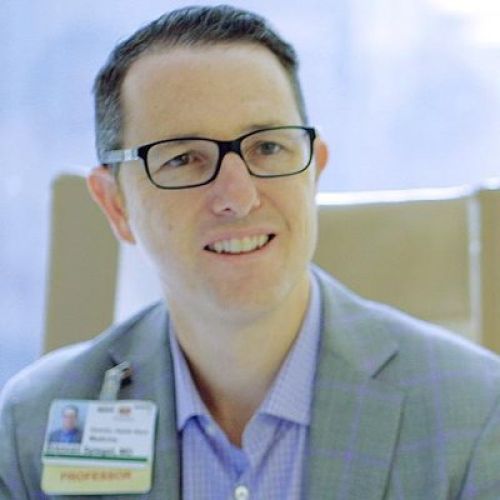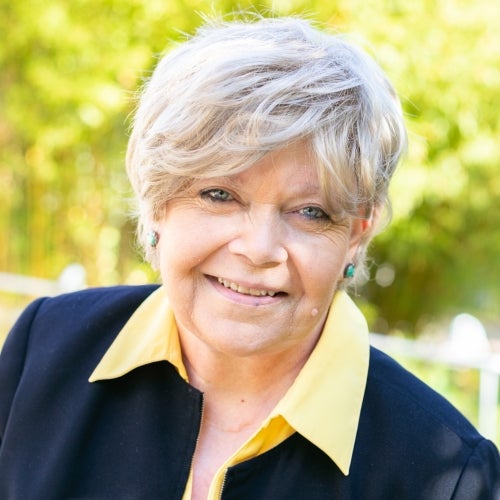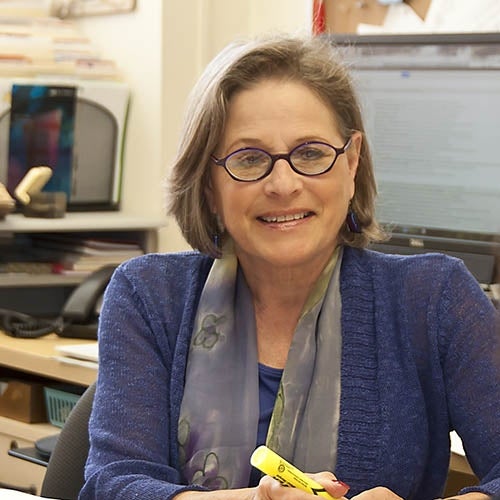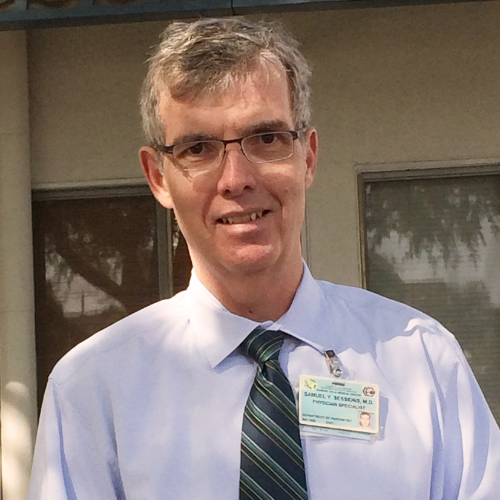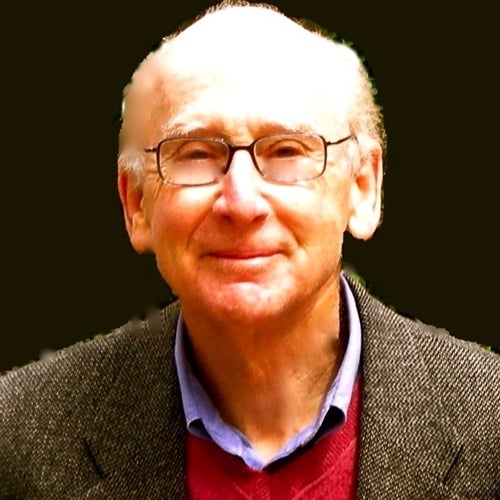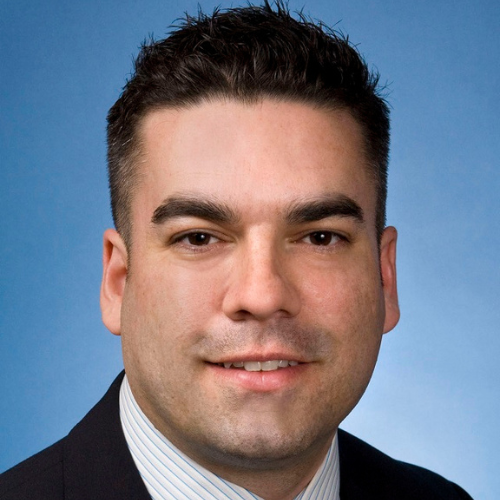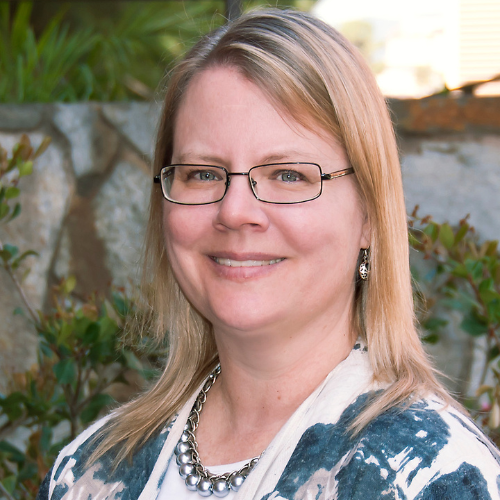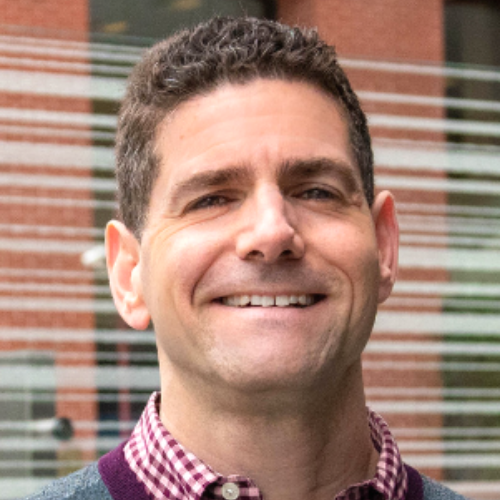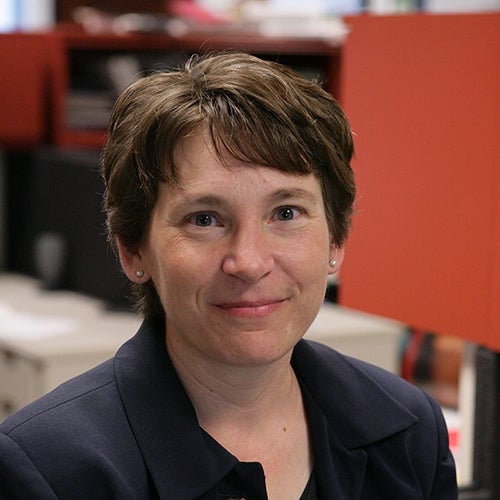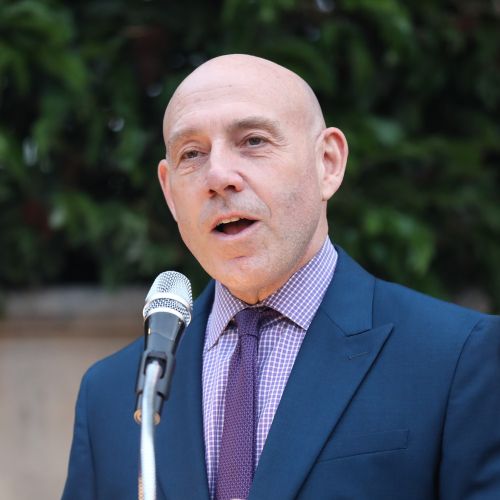Screen Test
An FSPH research team has partnered with a large federally qualified health center to study and implement strategies to increase colorectal cancer screening.
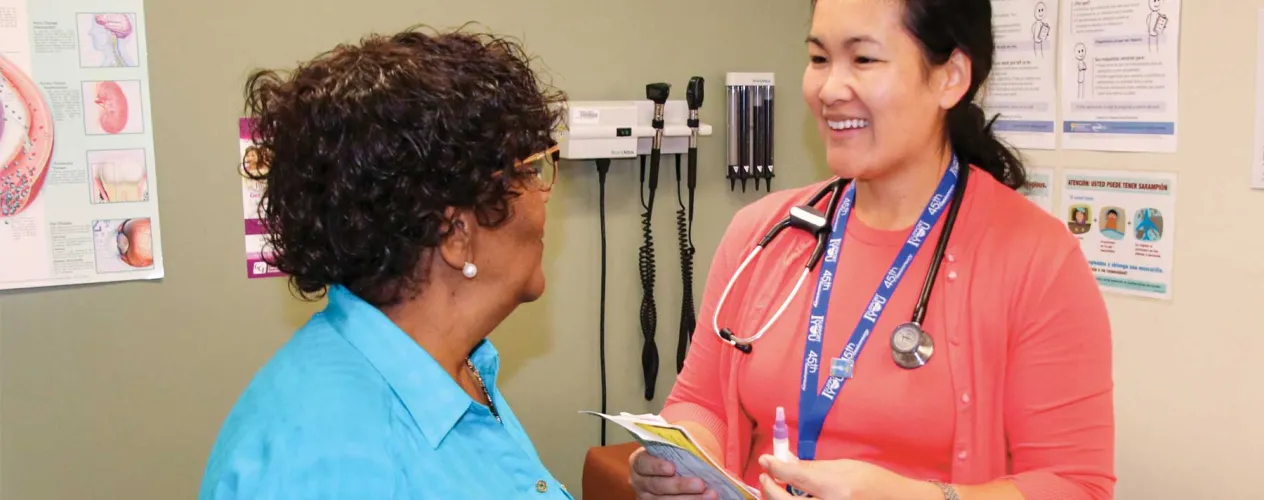
APPROXIMATELY 50,000 PEOPLE die from colorectal cancer (CRC) each year in the United States, making it the nation’s second-most deadly cancer — despite the fact that the disease is highly preventable. Screening can detect CRC at an early stage, when treatment is most likely to be successful. In addition, screening can prevent CRC by finding and removing abnormal cell growths or polyps before they can develop into cancer. But CRC screening is underutilized, particularly in low-resource settings and by low-income populations. And among those who do get screened, many fail to follow up on abnormal results or to repeat the screening at the recommended time intervals.
A new research program by the UCLA Kaiser Permanente Center for Health Equity at FSPH is addressing the problem from multiple angles by testing the effectiveness of strategies designed to increase screening rates, as well as identifying barriers to repeat screening and timely follow-up of abnormal results. Researchers at the center are conducting this work in partnership with the Northeast Valley Health Corporation (NEVHC), one of the nation’s largest federally qualified health centers (FQHCs), with 15 community-based facilities serving a low-income, uninsured, mostly Latino population in Los Angeles’ San Fernando and Santa Clarita valleys. FQHCs are community- based facilities that receive federal funds to provide primary care services to underserved patients.
“This is a true university community collaboration, with all of the study interventions implemented by the NEVHC clinics, which provide outstanding care to our most vulnerable populations and are always looking for ways to improve,” says Roshan Bastani, Fielding School professor and director of the UCLA Kaiser Permanente Center for Health Equity, who is leading the work along with two Fielding School alumni she trained: Dr. Folasade May (PhD ’15), who heads the study on follow-up of abnormal findings, and Narissa Nonzee (PhD ’18), who heads the repeat screening study. “The idea is to work with the clinics in developing effective interventions that take into consideration their real-world settings so that they will continue to be utilized long after the study has ended.” The partnership also includes efforts aimed at raising community awareness about the importance of colorectal cancer screening, in part through the training of Spanish-speaking promotoras (community health workers).
The main screening study — which includes as co-principal investigators Alison Herrmann (PhD ’12) and Beth Glenn, FSPH faculty members and Kaiser center associate directors — will implement and evaluate a program focused on increasing CRC screening at NEVHC through strategies at the system, provider, and patient levels. The study will compare the results of two NEVHC clinics that implement the multilevel intervention with two clinics that provide standard care.
The CRC screening test used most commonly by FQHCs, including NEVHC, is the fecal immunochemical test (FIT), which examines the stool for microscopic early signs of colorectal cancer or polyps. Although colonoscopy is considered the gold standard for CRC screening, the FIT test is effective, noninvasive, and much more accessible to low-income patients. National guidelines call for annual FIT tests for average risk individuals between the ages of 50 and 75.
To promote increased FIT screening participation by NEVHC patients, the main focus of the screening study is on workflow changes to ensure that providers are informed of patients who are due for screening; that all eligible patients receive a FIT kit along with a recommendation from their provider; that culturally and linguistically tailored education on the test is provided by staff; and that patients are issued follow-up reminders encouraging them to return the completed kit. Physicians and staff in the intervention clinics will receive training, clinical decision support, and feedback on screening rates and missed screening opportunities among their patients.
“We’re trying to address missed opportunities,” explains Debra Rosen, NEVHC’s director of quality and health education and the lead NEVHC investigator. “We have good tools in place that identify which patients are due for FIT screening, but many other steps need to occur to make sure the patients take home the test, complete it properly, and return it, and that everything is documented so that nothing falls through the cracks. We have made significant improvement in CRC screening, but are still well short of our goal and excited to work with the Fielding School team to determine what more we can do.”
The idea is to work with the clinics in developing effective interventions that take into consideration their real-world settings.
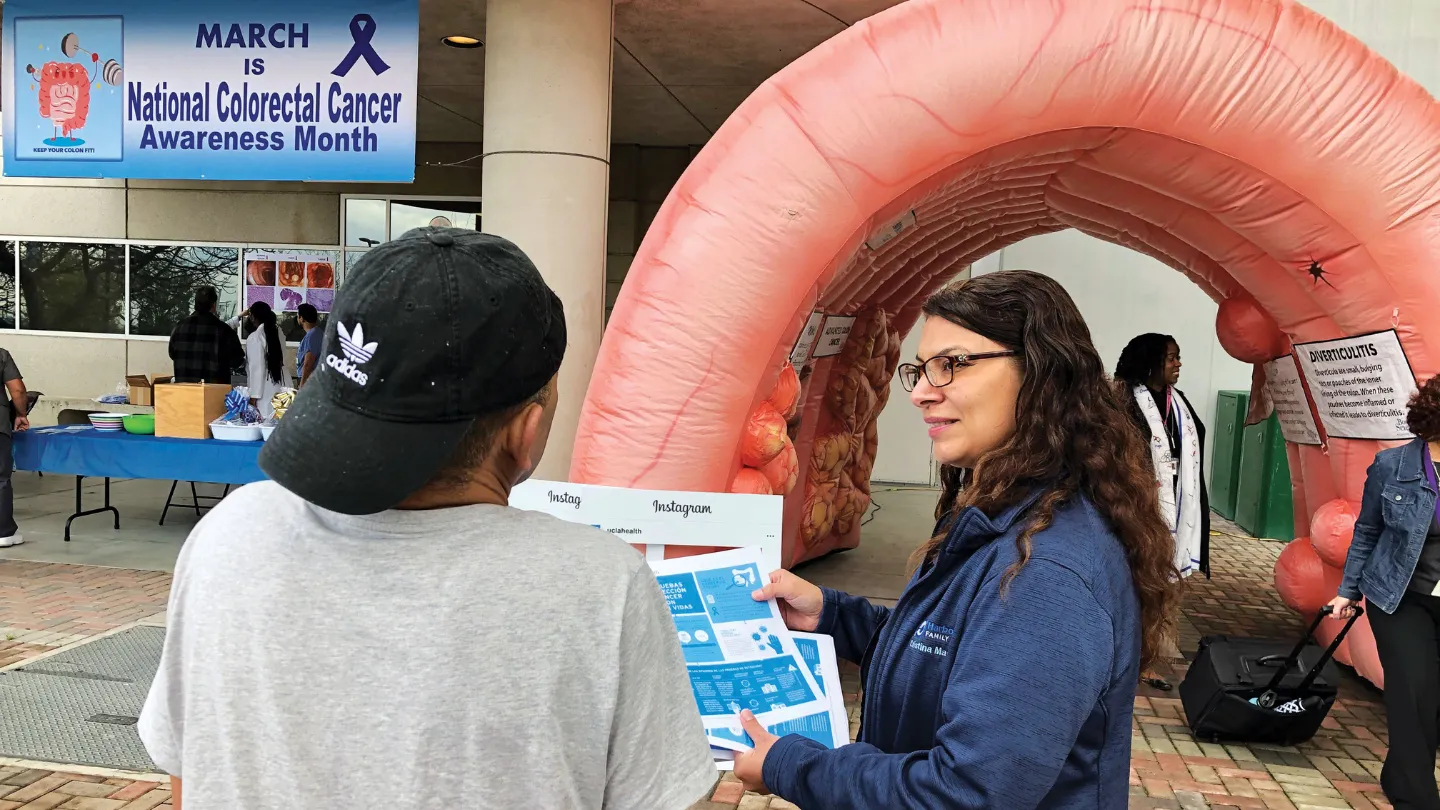
Trained Spanish-speaking promotoras (community health workers) promote colorectal cancer screening, including encouraging people to walk inside a giant "colon."
Even when patients complete and return the FIT test, they benefit only if they follow up on an abnormal finding. Between 5% and 14% of FIT results are positive, requiring a colonoscopy to assess for cancer or precancerous polyps. But May notes that in FQHCs, only about half of patients get a colonoscopy after a positive FIT. The study she leads will examine NEVHC’s electronic medical record data and interview providers and patients to learn about and ultimately address the factors that influence whether patients will follow up on a positive test with a colonoscopy.
“Unlike at a large integrated health system like UCLA, FQHCs don’t have gastroenterologists, so patients have to be referred to a specialist outside of the system,” says May, an assistant professor in UCLA’s Vatche and Tamar Manoukian Division of Digestive Diseases. “We want to understand what can be done at the provider, patient, and system levels to overcome the challenges of ensuring follow-ups for these patients.” Nonzee, an FSPH postdoctoral fellow, is addressing the third piece — how to increase the likelihood that NEVHC patients will get repeat screenings. She points out that studies have found that even when patients are not required to pay, as many as 75% of those who complete an initial FIT test fail to repeat it, as recommended, the next year. “We have good tests that can screen for colorectal cancer, but the benefits of the tests aren’t being optimized unless they’re completed on a regular basis,” Nonzee says. “We want to understand what factors determine who gets repeat testing, as well as how those might differ from the factors influencing who gets their initial screening.” She will utilize NEVHC’s electronic medical records as well as interviewing providers and patients to find answers. For Bastani, this program is especially satisfying because of the involvement of so many former FSPH students whom she has mentored. “To see them building their own research programs makes me feel like a proud parent,” she says. “We are all working together toward the same public health goal — identifying successful strategies to increase CRC screening that can be widely disseminated to other similar settings, so that we can reduce the population-level burden of this very serious but highly preventable cancer.”
Faculty Referenced by this Article
Nationally recognized health services researcher and sociomedical scientist with 25+ years' experience in effectiveness and implementation research.

Dr. Ron Andersen is the Wasserman Professor Emeritus in the UCLA Departments of Health Policy and Management.

EMPH Academic Program Director with expertise in healthcare marketing, finance, and reproductive health policy, teaching in the EMPH, MPH, MHA program

Professor of Community Health Sciences & Health Policy and Management, and Associate Dean for Research

Dr. Michelle S. Keller is a health services researcher whose research focuses on the use and prescribing of high-risk medications.

